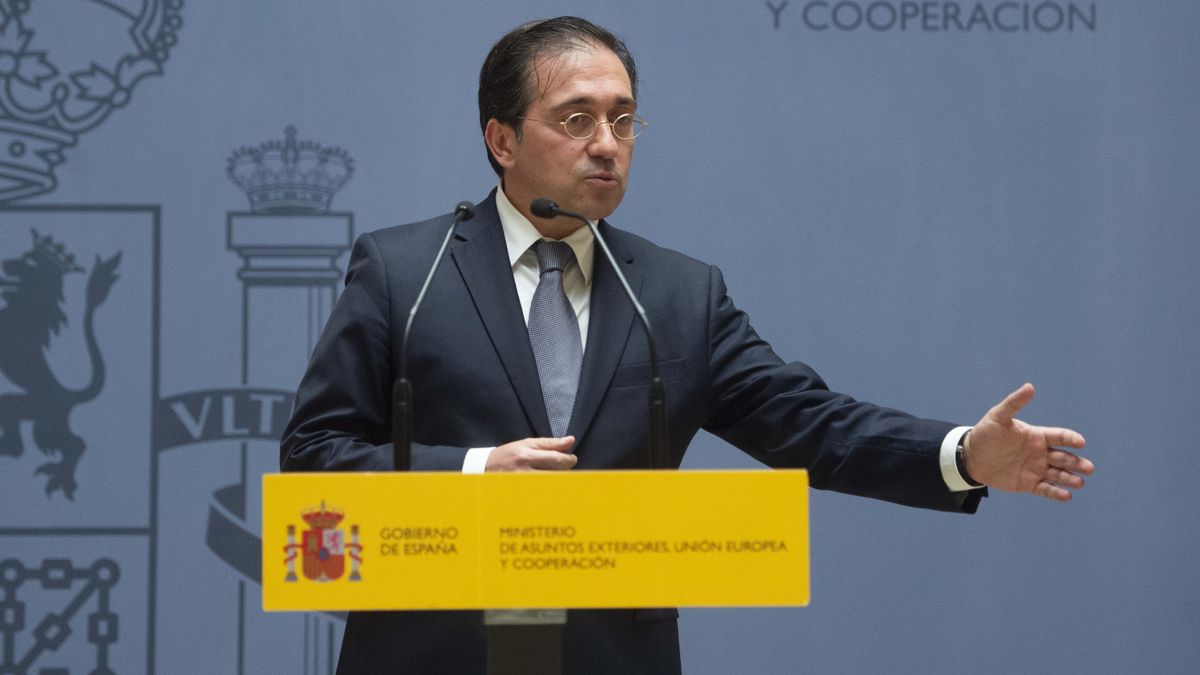Luis Ayllón
The Minister of Foreign Affairs, José Manuel Albares, will make his debut next Monday in the Congress of Deputies to report on the crisis in Afghanistan and the measures adopted by the Government, but also to present his priorities at the head of the Palace of Santa Cruz to the parliamentarians.
The Permanent Deputation of Congress unanimously approved Albares’ appearance on Wednesday, after rejecting that of the head of the Executive, Pedro Sánchez, to give an account of the Government’s actions in relation to Afghanistan, including the operation to bring Afghans and their families who collaborated with the armed forces and Spanish aid workers in that country back to Spain.
Among other things, he will have to report on the evacuations carried out, as well as the agreements reached with the European Union and the United States to receive other Afghans. In the first case, the Torrejón de Ardoz air base is acting as a “hub” to receive those evacuated by European External Action Service planes and then distribute them to other parts of the EU. For the second, Washington was offered to temporarily host up to 4,000 Afghans collaborating with the United States at the Rota and Morón de la Frontera bases.
However, in his speech, the minister will not confine himself to this issue alone, but will take the opportunity to set out the general lines of the policy he wishes to develop as head of the Foreign Affairs Department. Albares had offered to do so in July, after taking office on the 10th of that month, and several parliamentary groups had also requested that he do so.
Among other things, the Foreign Affairs Minister will explain the reshuffle carried out in his Ministry, which includes the recovery of the State Secretariat for Ibero-America and the Caribbean, which, during the time of Arancha González Laya, was included in the State Secretariat for Foreign Affairs, and which has now added the responsibilities for ‘Spanish in the World’. In addition, in this reshuffle, the State Secretariat for Global Spain disappeared, and its directorates-general have been transferred to other state secretariats.
After taking office, Albares adopted measures to unblock some appointments that had been at a standstill, such as that of ambassador to London or director of Casa América, but he also took some decisions that have surprised diplomats, such as paralysing some of the ambassadorial appointments made by his predecessor in the post, something unprecedented when the incoming minister was of the same colour as the outgoing one.
Among these stalled appointments, are that of González Laya’s former chief of staff, Camilo Villarino, to Moscow, after a judge charged him in the ‘Ghali case’, and that of Felipe de la Morena, to South Africa, who had already been given the plácet, and who will be replaced by Raimundo Robredo, director general for Africa, who, in turn, was to go as ambassador to Thailand. Santa Cruz argues that the minister wants the people chosen for the posts to be more in line with their professional background and experience.
It is also foreseeable that, during the appearance, which has been called for 11 a.m., the minister will speak, on his own initiative or to questions from MPs, about other relevant foreign policy issues, such as the crisis with Morocco, which seems to have entered a process of resolution; the decision to recall the ambassador to Nicaragua for consultations; or Spain’s role in the implementation of a negotiating process in Venezuela between the regime of Nicolás Maduro and the opposition.







